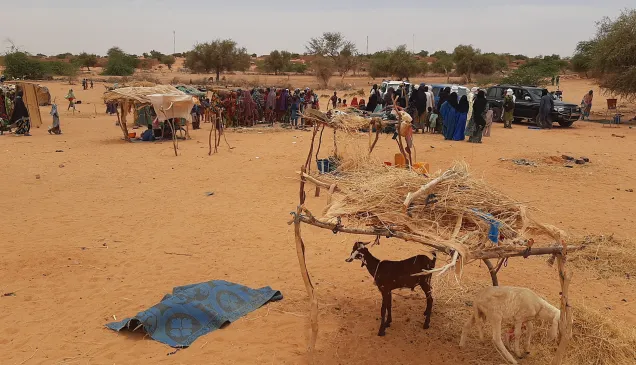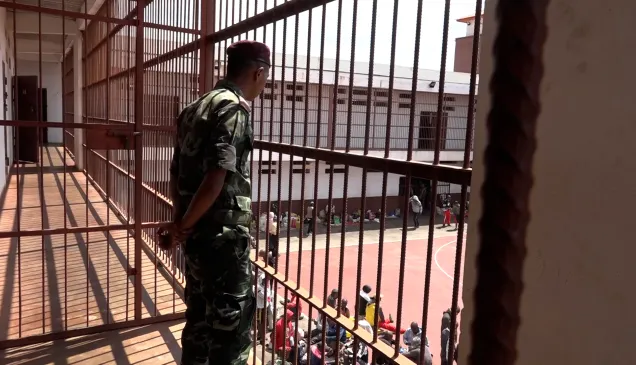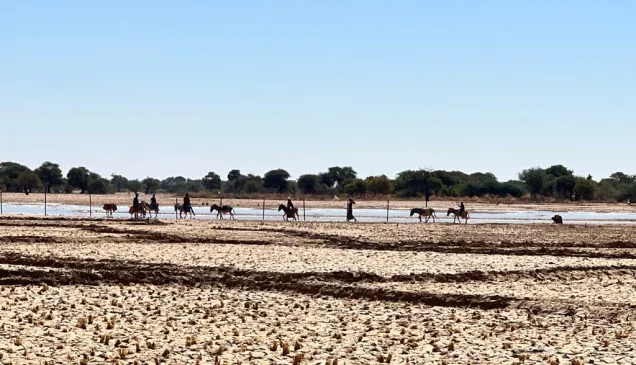"For those affected by the conflict in Mali, everything has become a battle"
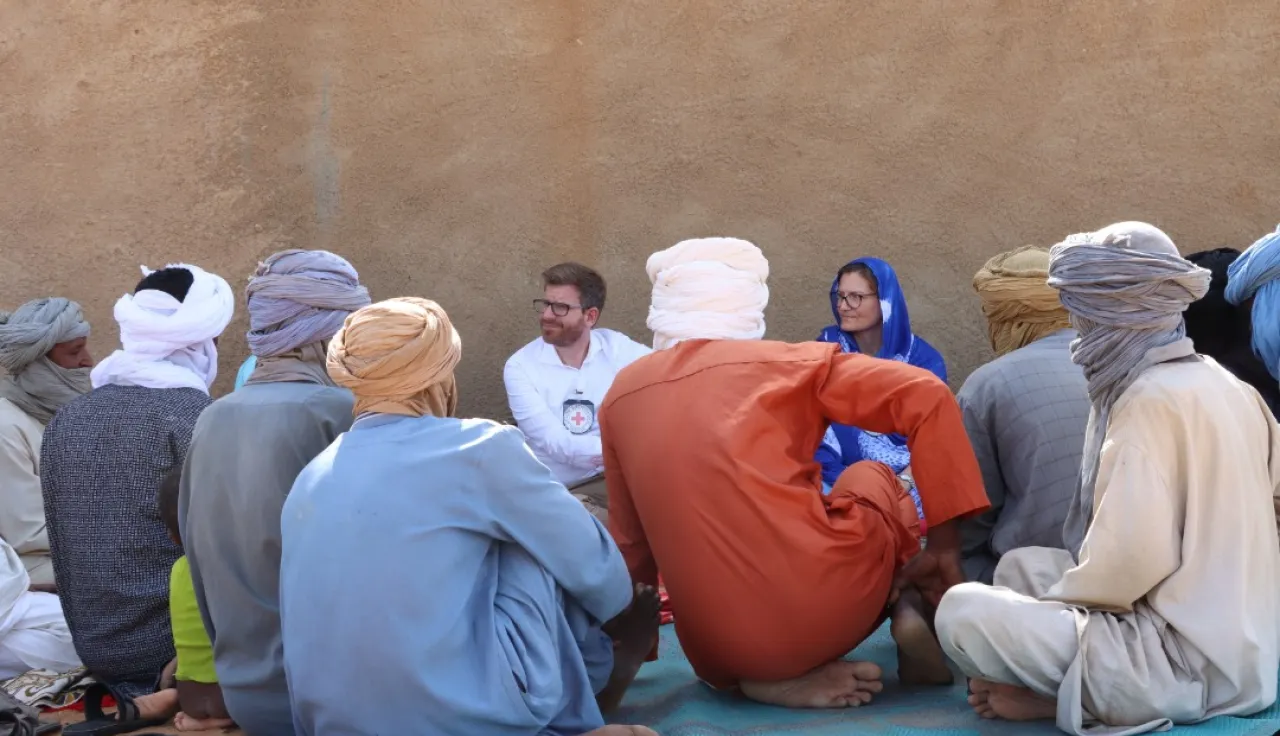
In Mali, people’s lives continue to be heavily impacted by the conflict there. Back in September, Martin Schüepp, the new director of operations at the International Committee of the Red Cross (ICRC) and Sarah Epprecht, the ICRC's new director of protection and essential services, visited the country to take stock of the situation, which is getting worse by the day.
1. After going there, what would you say the situation is like for people in Mali?
Martin Schüepp : I'd say that I'm now even more worried about how the situation is evolving. More and more people are in need of help – the number of people who have been displaced or affected in some other way by the conflict is increasing. Every day, the violence and the effects of climate change force people to flee to areas considered safer. These people are constantly on the move, so it's very hard for them to settle down in one place and earn a stable livelihood.
The conflict in Mali is extremely complex and involves many different groups. On top of that, crime is rife, which is also a security challenge for a humanitarian organization like the ICRC. In spite of all that, we're doing everything we can to reach those in distress, including in the remotest areas of the country. By being near them, we can understand their needs and respond as effectively as possible to them.
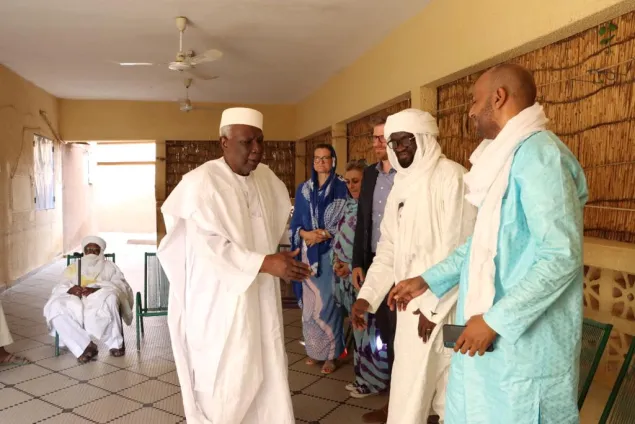
The ICRC makes a courtesy call in Gao.
2. Can you give us some concrete examples of how climate change is also affecting people's lives, in addition to the violence?
Sarah Epprecht : We spoke with many people who have been displaced by the conflict. It's clear that the combination of violence, repeated displacement and climate change have had a deep impact on people's lives. For these people, everything has become a battle – they have to think about how to survive in such a harsh environment, how to get access to medical care and education, how to find food, how to keep their livestock alive, and even how to keep themselves alive. When people can no longer cope and their resilience has run dry, that's when they become especially vulnerable.
In many regions, it's getting harder and harder for people to get water and find farmland. In some places, it's even impossible. Food insecurity is widespread across the Sahel and in the Horn of Africa. The recent rains brought some hope that this harvest will be better than the last. But let's not fool ourselves: the prices of supplies, such as seeds and fertilisers, have also gone through the roof. The needs of these communities will be huge in the months – and even years – ahead.
Yet I was so inspired by the dignity and resilience of the people I met. Their ability to adapt is truly impressive. It's our job – alongside partners like the Mali Red Cross – to help them as they seek to overcome their hardship.
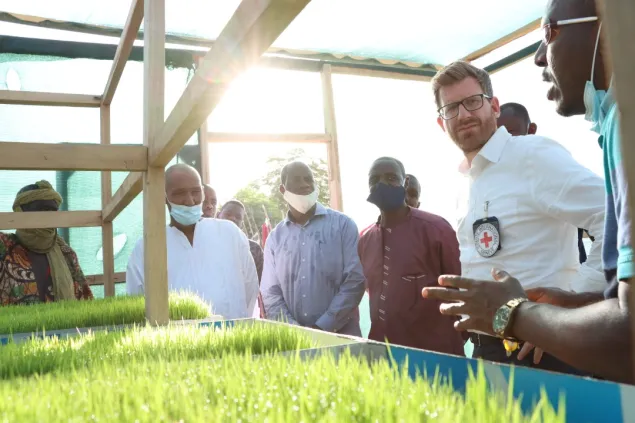
The ICRC's director of operations visits a hydroponic fodder farm in Timbuktu.
3. How has the ICRC adapted its response in Mali?
Martin Schüepp : We're staying true to our principles – we make sure that we are neutral, independent and impartial. That's absolutely essential in such a polarized and ever-changing environment. We try to maintain a frank and transparent dialogue with the authorities and other groups so that we can reach those who need our help, even in the remotest areas and where the fighting is most intense. That way, we can listen to people and respond effectively to their needs, within the limits of our capacities.
Having volunteers from the Mali Red Cross out in the field is a real asset. We work closely with them to ensure we are meeting people's needs. We aim to further strengthen our partnership with the Mali Red Cross and all other International Red Cross and Red Crescent Movement partners active in Mali, so that we can step up our response efforts.
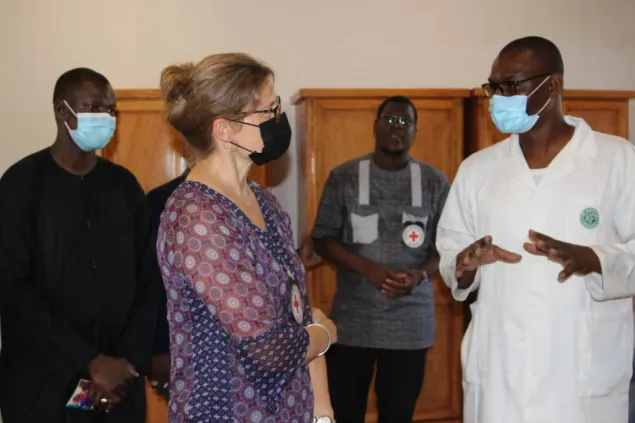
The director of protection and essential services visits an orthopaedic centre in Mopti.
Sarah Epprecht : We also make sure that we do more than simply provide emergency relief like food aid. We also want to help people become more resilient and rebuild their livelihoods. We seek to strike the right balance between emergency operations and building people's capacity to bounce back – that's important in a country like Mali, as it ensures that the impact of our work is as long-lasting as possible.
At the moment, donors are very focused on the conflict in Ukraine, but I think it's important to remind them that people in the Sahel need help – and increasingly so. There are millions of very vulnerable people in Mali and the wider region, and they mustn't be forgotten.
And like in every conflict, we work tirelessly to raise awareness among weapon bearers and authority figures of the need to comply with the rules of war. We want to get the message across that parties to the conflict must do everything they can to spare civilians and essential infrastructure.

